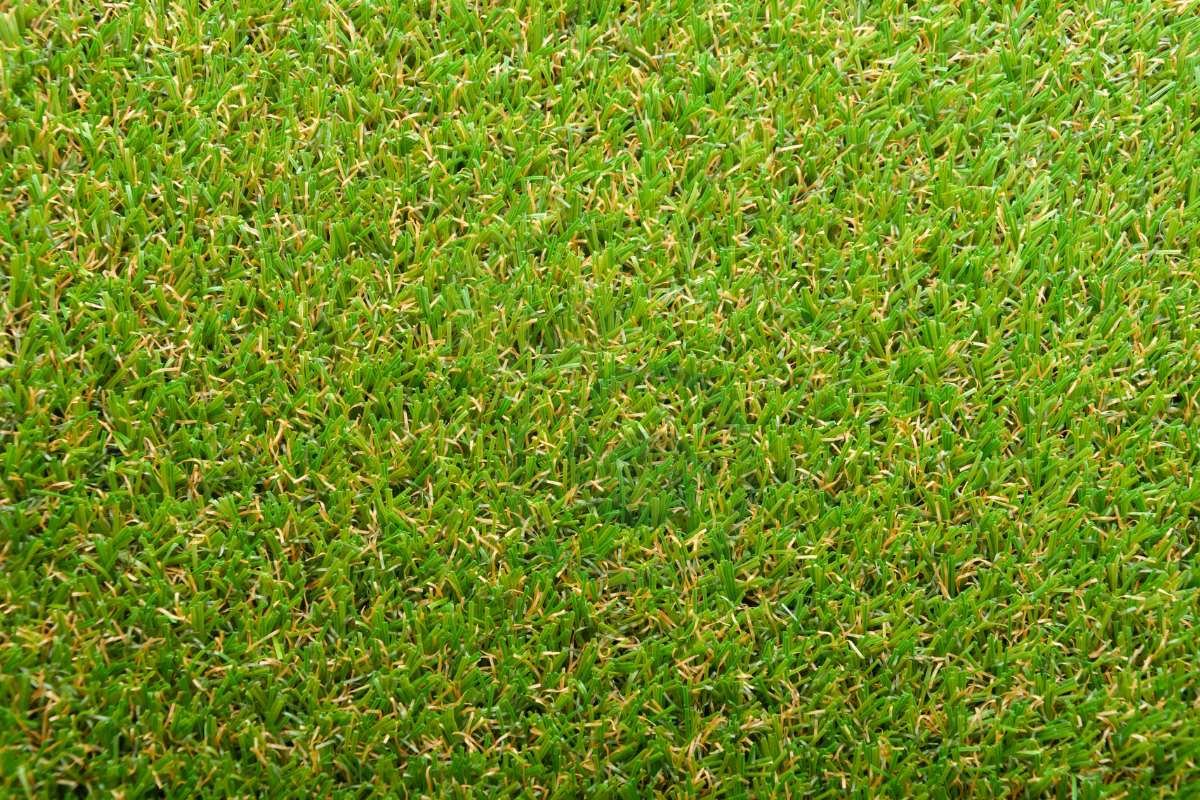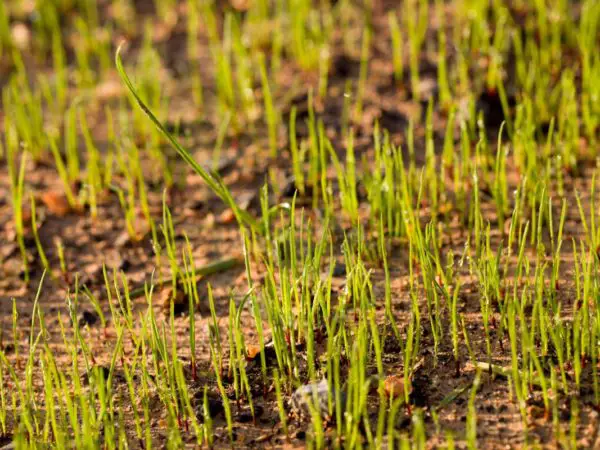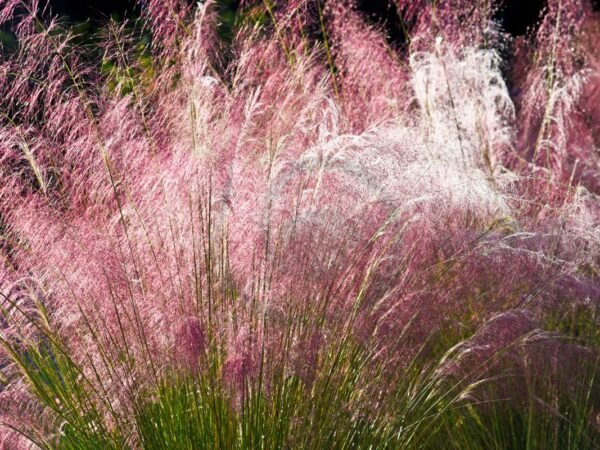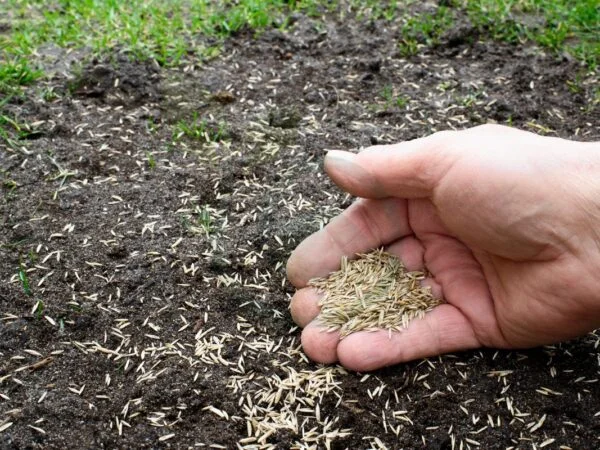Did you know that choosing the right Bermuda grass seed can make a significant difference in your lawn's health and appearance? In Central Texas, where the climate can be challenging, selecting the best seed variety is crucial for a lush green yard that can withstand the heat and drought. With numerous options available, finding the ideal Bermuda grass seed tailored to Central Texas conditions is essential for a thriving lawn. In this guide, we will explore top recommendations and factors to consider when selecting the best Bermuda grass seed for seeding in warm season regions like Central Texas.
Key Takeaways
- Choose Bermuda grass varieties like Princess 77 or Sahara II for optimal growth in Central Texas conditions.
- Follow proper seeding practices such as soil preparation, adequate watering, and maintenance to ensure successful grass establishment.
- Regularly refer to the planting guide provided to ensure that you are following the recommended steps for Bermuda grass seed planting.
- Implement lawn care tips like mowing at the correct height and fertilizing appropriately to maintain a healthy Bermuda grass lawn.
- If troubleshooting common issues like yellowing or patchiness, refer back to the comparative analysis section for insights on potential causes and solutions.
- By selecting the best Bermuda grass seed and following the outlined guidelines, you can cultivate a lush and thriving lawn in Central Texas.
Bermuda Grass Basics
Ideal Climate
Bermuda grass thrives in warm climates with ample sunlight, making it perfect for Central Texas. The ideal temperature range in this region is essential for optimal growth.
Soil Preferences
- Bermuda grass prefers well-draining soils with good aeration to thrive effectively.
- In Central Texas, slightly acidic soils are ideal for promoting the growth of Bermuda grass.
- Understanding the soil pH requirements specific to Central Texas is crucial for successful cultivation.
Growth Habits
Bermuda grass is renowned for its aggressive growth and spreading tendencies, which require proper maintenance planning. Central Texas conditions play a significant role in influencing the growth patterns of Bermuda grass.
Central Texas Conditions
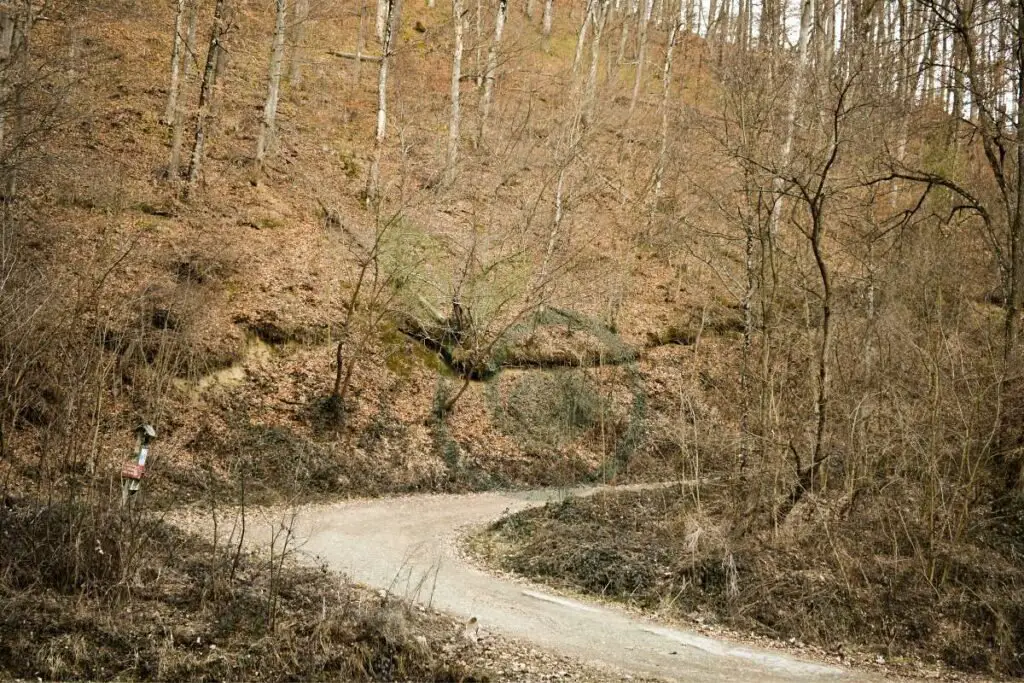
Climate Overview
Central Texas boasts hot summers and mild winters, creating ideal conditions for Bermuda grass to thrive. The grass's ability to endure the scorching heat and occasional droughts in this region makes it a popular choice among homeowners. Selecting the right Bermuda grass seed is crucial, considering the climate overview of Central Texas.
Soil Types
The diverse soil types found across Central Texas have varying impacts on Bermuda grass growth. Understanding the composition of the soil is essential when deciding on which Bermuda grass seed to plant. Clay soils prevalent in this region may necessitate specific amendments to ensure optimal growth for Bermuda grass.
Seeding Best Practices
Optimal Timing
Planting Bermuda grass seeds at the right time ensures successful establishment. Timing is crucial for seed germination and growth. In Central Texas, early spring or late spring are ideal times for seeding.
Knowing the optimal timing for seeding Bermuda grass in Central Texas is key to a healthy lawn. Avoid planting during extreme weather conditions like summer heatwaves or winter frost. Ensure consistent moisture post-seeding for best results.
Soil Preparation
Proper soil preparation is essential for successful Bermuda grass growth. Test soil pH levels before planting to determine if any amendments are needed. Adding organic matter can improve soil structure and nutrient retention.
Central Texas soil may require additional nutrients before planting Bermuda grass. Consider using fertilizers with balanced NPK ratios suitable for Bermuda grass varieties. Aerating the soil can also enhance root development and water penetration.
Maintenance Tips
Regular mowing at the correct height promotes Bermuda grass health by encouraging lateral spread and dense growth. Aim to mow when the grass reaches 2-3 inches in height, removing no more than one-third of its length each time.
Proper watering and fertilization are vital for maintaining Bermuda grass in Central Texas. Water deeply but infrequently to encourage deep root growth, especially during hot summers. Fertilize according to soil test recommendations to avoid over-application.
Implementing effective maintenance tips ensures a lush and vibrant Bermuda grass lawn that can withstand Central Texas' varying climate conditions throughout the year.
Bermuda Varieties Overview
Common Types
Central Texas boasts various common Bermuda grass varieties each with distinct characteristics. Selecting the ideal Bermuda grass type hinges on specific lawn needs. Familiarizing oneself with these types aids in choosing the best seed for Central Texas lawns.
Among the prevalent Bermuda grass varieties in Central Texas are Tifway 419, Celebration, and Princess 77. Each variety offers unique attributes catering to different environmental conditions and maintenance preferences. The selection process involves assessing factors like sunlight exposure, water availability, and desired aesthetic appeal.
Unique Traits
Different Bermuda grass varieties showcase exclusive traits crucial for optimal lawn health in Central Texas. Some exhibit exceptional shade tolerance, while others excel in drought resistance or wear tolerance. Understanding these distinctive features is essential when deciding on the most suitable seed for one's lawn.
For instance, if a homeowner's yard receives limited sunlight due to surrounding trees or structures, opting for a Bermuda grass variety known for its shade tolerance is paramount. On the other hand, areas prone to extended periods of drought necessitate selecting a variety renowned for its resilience under such conditions.
Top Choices for Central Texas
Blackjack Insights
Blackjack Bermuda grass is a popular choice for Central Texas lawns. Understanding its characteristics and growth habits is crucial. This grass thrives in full sunlight, making it ideal for the hot Texan climate.
To ensure a healthy lawn with Blackjack Bermuda grass, specific care practices are necessary. Regular watering and fertilizing help maintain its vibrant green color. Mowing at the right height promotes dense growth and prevents weed invasion.
Implementing proper maintenance techniques such as dethatching and aerating keeps the soil healthy and allows roots to grow deeply. This enhances the grass's resilience against drought conditions common in Central Texas.
Combat Extreme
Bermuda grass in Central Texas faces challenges from extreme weather conditions throughout the year. From scorching summers to occasional winter freezes, this grass needs special attention to thrive.
Protecting Bermuda grass from extreme heat involves regular watering during dry spells to prevent wilting and browning of the turf. Installing a sprinkler system or using soaker hoses ensures even moisture distribution across the lawn.
During cold snaps, covering Bermuda grass with frost cloth or mulch helps insulate it from freezing temperatures. Properly timed overseeding in fall can also strengthen the turf's ability to withstand winter stress.
Understanding how different types of soil affect Bermuda grass growth is essential for maintaining a lush lawn in Central Texas. Sandy soils drain quickly but may require more frequent watering, while clay soils retain moisture longer but need proper aeration to prevent waterlogging.
Comparative Analysis
Drought Tolerance

Bermuda grass varieties with high drought tolerance thrive in Central Texas's arid climate. These strains endure long periods without water, making them ideal for the region. Water conservation practices become crucial during dry spells to sustain Bermuda grass health. Choosing seeds known for their resilience in drought conditions is paramount for vibrant lawns.
Maintenance Needs
Central Texas demands specific care for Bermuda grass to flourish. Regular aeration and dethatching are vital tasks to promote healthy growth and prevent thatch buildup. Understanding the unique maintenance requirements of Bermuda grass is key to maintaining a lush lawn throughout the year.
Planting Guide
Step-by-Step Process
Following a step-by-step process for planting Bermuda grass seeds is crucial. Central Texas residents must prepare the soil adequately before planting. Remove any existing vegetation and debris to create a clean surface for optimal seed germination. Next, loosen the soil to a depth of at least 2 inches using a rake or garden tiller.
Implementing a detailed step-by-step process ensures optimal growth of Bermuda grass in Central Texas. Once the soil is prepared, evenly spread the Bermuda grass seeds using a broadcast spreader. Lightly rake the area again to ensure good seed-to-soil contact, which aids in germination. Water the seeded area immediately after planting to help kickstart growth.
Watering Schedule
Establishing a proper watering schedule is essential for Bermuda grass in Central Texas. After planting, water the seeded area lightly multiple times daily to keep the soil consistently moist until germination occurs. Once the seeds have sprouted, gradually reduce watering frequency but increase the amount of water applied during each session.
Adjusting the watering frequency based on weather conditions promotes Bermuda grass health in Central Texas. During hot and dry periods, increase watering sessions to prevent dehydration and maintain vibrant green coloration. Conversely, reduce watering during cooler and wetter seasons to prevent overwatering and weed growth.
Lawn Care Tips
Fertilization
Applying the right type and amount of fertilizer is crucial for Bermuda grass growth. Central Texas soil may require specific fertilization practices tailored to Bermuda grass needs. Understanding the fertilization requirements is key to ensuring healthy Bermuda grass in Central Texas.
Mowing Practices
Proper mowing practices are essential for maintaining Bermuda grass at the ideal height. In Central Texas, residents should adhere to recommended mowing heights specifically designed for Bermuda grass. Implementing correct mowing practices not only ensures the ideal height but also promotes density and health of Bermuda grass.
Troubleshooting Common Issues
Pest Management
Implementing pest management strategies is crucial for safeguarding Bermuda grass in Central Texas. Pests can significantly impact the health and appearance of your lawn, leading to brown patches and thinning areas. By regularly inspecting your Bermuda grass for signs of pests like chinch bugs or armyworms, you can take proactive measures to prevent extensive damage. Applying natural remedies such as neem oil or introducing beneficial insects like ladybugs can help control pest populations effectively. Maintaining proper watering and fertilization schedules can enhance the grass's resilience against common pests.
Central Texas may harbor specific pests that pose a threat to Bermuda grass health. For instance, the warm and humid climate in this region creates an ideal environment for fungal diseases like brown patch or dollar spot, which can weaken Bermuda grass if left untreated. To combat these issues, it's essential to aerate your lawn regularly to improve air circulation and reduce moisture levels that promote disease development. Furthermore, avoiding over-fertilization and mowing at the correct height can minimize stress on the grass, making it less susceptible to diseases.
Identifying and addressing pest issues promptly is paramount for maintaining a lush and healthy Bermuda grass lawn in Central Texas. Early detection of pests allows you to take swift action through targeted treatments that prevent infestations from spreading further. By incorporating integrated pest management techniques such as rotating pesticides with different modes of action, you can prevent pesticide resistance while effectively controlling pest populations without harming beneficial organisms in your lawn.
Disease Prevention
Preventing diseases through proper lawn care practices is key to preserving the vitality of Bermuda grass in Central Texas. The hot summers and occasional periods of high humidity in this region create favorable conditions for diseases like rust or leaf spot to thrive on weakened turfgrass. To mitigate these risks, ensure adequate soil drainage by incorporating organic matter into the soil and avoiding excessive irrigation that promotes fungal growth.
Central Texas conditions may predispose Bermuda grass to certain diseases due to fluctuations in temperature and moisture levels throughout the year. Implementing cultural practices such as overseeding with disease-resistant varieties or applying fungicides preventively during peak disease seasons can fortify your lawn against potential infections.
Implementing disease prevention measures not only protects your Bermuda grass from unsightly blemishes but also promotes overall turf health by reducing stress factors that make it more vulnerable to diseases prevalent in Central Texas.
Final Remarks
In your quest for the best Bermuda grass seed for Central Texas, you've gained insights into the basics, ideal varieties, planting techniques, and maintenance tips. By understanding your local conditions and selecting the right seed, you're on track to a lush and vibrant lawn that can withstand the Texas heat. Remember to follow the planting guide closely and address any issues promptly to ensure your Bermuda grass thrives.
As you embark on this green journey, armed with knowledge and top choices for Central Texas, take pride in your lawn care efforts. Your dedication will yield a beautiful outdoor space for relaxation and enjoyment. Stay proactive in nurturing your Bermuda grass, and soon you'll be rewarded with a resilient and picturesque lawn that enhances your outdoor living experience.
Frequently Asked Questions
What are the key characteristics of Bermuda grass for Central Texas?
Bermuda grass thrives in hot climates, tolerates high foot traffic, and requires minimal water. It's known for its rapid growth and ability to recover quickly from stress or damage.
How can I choose the best Bermuda grass seed variety for Central Texas?
Consider factors like drought tolerance, disease resistance, and shade adaptability. Popular varieties like Tifway 419 and Princess 77 are well-suited for Central Texas due to their resilience and low maintenance requirements.
When is the ideal time to plant Bermuda grass seed in Central Texas?
Early summer to early fall is optimal for planting Bermuda grass seeds in Central Texas. This timing allows the seeds to establish before winter while avoiding extreme heat stress during peak summer months.
How should I prepare my lawn before seeding Bermuda grass in Central Texas?
Prepare the soil by removing debris, tilling lightly, leveling any uneven areas, and ensuring proper drainage. Conduct a soil test to determine nutrient deficiencies and adjust pH levels if needed for optimal seed germination.
What are some common issues when growing Bermuda grass in Central Texas?
Common issues include overwatering leading to fungal diseases, poor soil quality affecting growth, improper mowing height causing stress, or weed invasion hindering development. Regular maintenance practices like correct watering and mowing techniques can help prevent these problems.
Image Source: Paid image from CANVA

